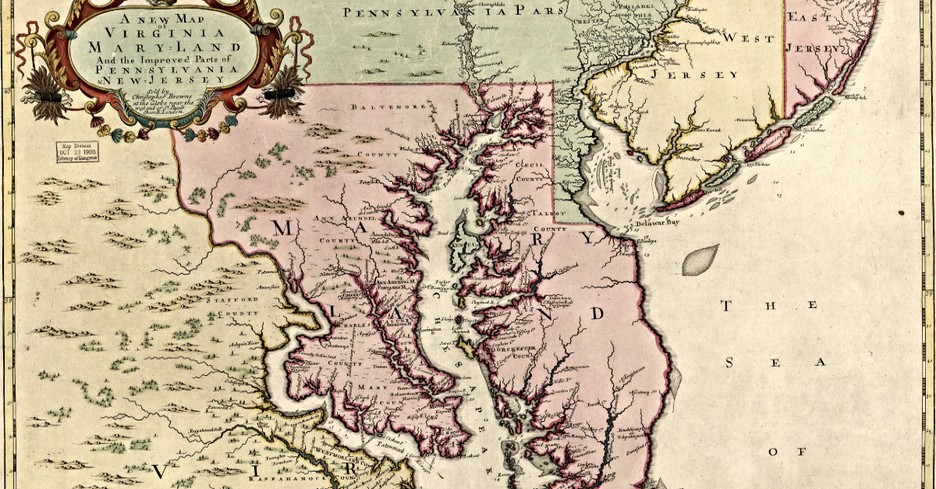
Religious Liberty in Colonial America
In the seventeenth century, there was little religious freedom in England. The separation of church and state was unknown. In fact, the king was head of both the Church of England and the nation. Any subject of the King who did not follow Church of England beliefs and practices could be punished and deprived of the full exercise of his or her citizenship rights.
Many dissenters from the Church of England sought freedom to worship by emigrating to America. Though the English colonies in America still were under the King's authority, Englishmen across the seas enjoyed greater freedom.
George Calvert was an Englishman who looked to America as a place of religious freedom. For years his family had to practice its Roman Catholic faith secretly while openly participating in the Church of England. Calvert sought a land grant in America, and King Charles the First gave him a big chunk of territory.
Calvert's son Cecelius fulfilled his father's dream of establishing a colony in America as a refuge for Catholics. From its founding in 1634, Maryland allowed a greater-than-usual amount of freedom for both Catholics and Protestants.
Toleration Act of 1649
With England in the hands of Puritans and Protestants beginning to outnumber Catholics in Maryland, the colony's legislature passed an Act of Toleration to ensure the religious liberty of Maryland's Catholics. The Toleration Act passed on April 24, 1649, granted religious freedom to all who believed in the Trinity and that Jesus was the son of God.
"...No person or persons whatever within this Province, or the islands, ports, harbors, creeks, or havens belonging to it, who professes to believe in Jesus Christ, shall from henceforth be any way troubled, harrassed or embarrassed for ...his or her religion..." [language modernized]
In addition, the law made it a crime to jeer at other believers by calling them names such as "papist," "heretic," or "Puritan." The death penalty could be meted out to anyone who denied the Trinity or rejected Christ's Sonship. Those who profaned Sunday by swearing excessively, becoming drunk, or working unnecessarily could be fined. Anyone who spoke against the Virgin Mary could be fined and whipped.
According to mtsu.edu, "The [Toleration Act] made it a crime to blaspheme God, the Holy Trinity, the Virgin Mary, or the early apostles and evangelists. It also forbade residents from disparagingly referring to another's religion and it provided for honoring the Sabbath."
Today the Toleration Act seems harsh and restrictive. Still, in its day, it offered more religious freedom for the citizens of Maryland than for those in England and most of Britain's colonies. The Maryland Act of Toleration is an important stepping stone to religious freedom, which became an essential characteristic of the United States.
Resources:
- Adapted from an earlier Christian History Institute story.
- Wiersema, Garry. "An Act Concerning Religion." The Maryland Toleration Act, 1649. (http://odur.let.rug.nl/~usa/D/1601-1650/maryland/mta.htm).
Photo credit: Wikipedia








